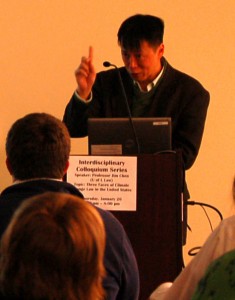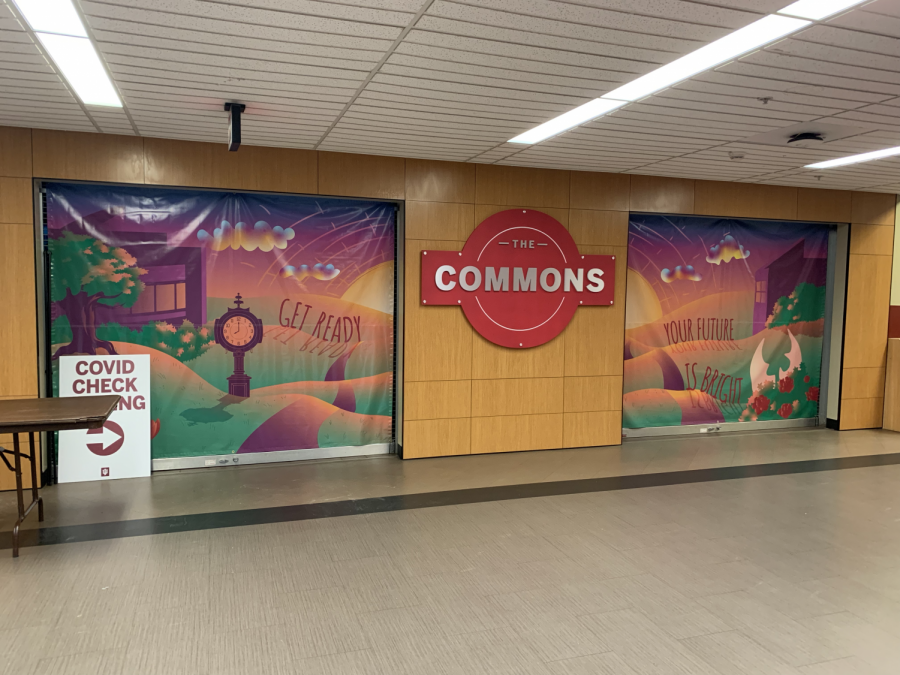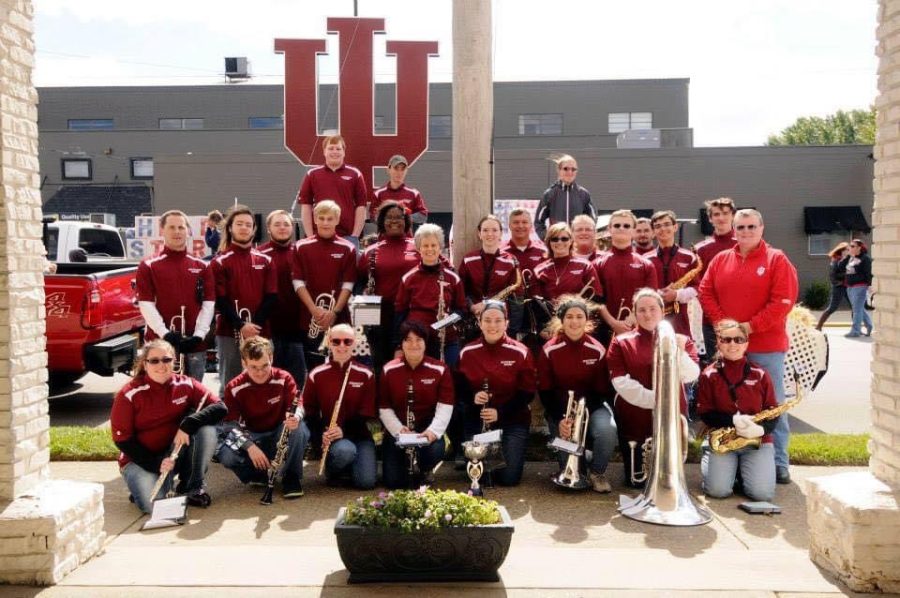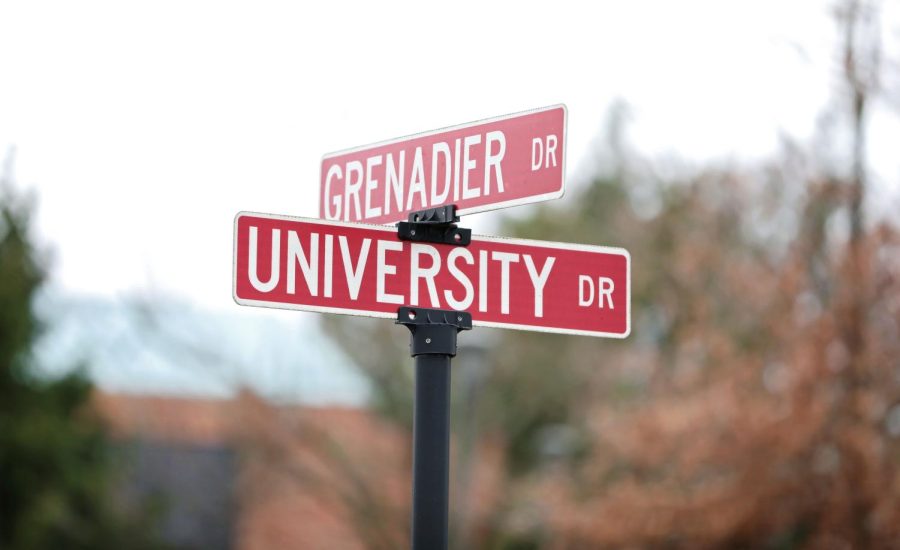
Guest speaker Jim Chen, dean and professor of law at the University of Louisville, discussed “Three Faces of Climate Change Law in the United States” at IU Southeast on Jan. 26.
Chen spoke about ways that U.S. citizens can take action toward climate change problems using three recent case studies to provide examples.
“I really enjoyed that the event was sociable,” Justin Levesque, psychology student, said. “It was also very individualized. My philosophy professor told me about this event.”
Levesque said he never thought environmental law and philosophy were two topics that went together.
“I hope the audience took insight on ways ordinary U.S. citizens can play a part in the legal and political debate of climate change,” Chen said.
The first point from the presentation was Massachusetts v. Environmental Protection Agency in 2007. This case resulted in the Clean Air Act, causing the EPA to have regulations and standards for new motor vehicles concerning emissions and pollution that may cause danger to health and public welfare.
This act was the result of a group of 19 private organizations, along with Massachusetts and other states, petitioning the EPA to regulate the greenhouse gas emissions from vehicles.
Although the EPA tried to argue that there is no direct link between greenhouse gases and the global rise in temperatures, evidence used in courts proved vehicles in the U.S. emit large amounts of carbon dioxide.
“Most lawyers don’t know or understand science to know about climate change,” Chen said. “If you can’t, as a citizen, get information to support your argument, you can’t win.”
Another point of the presentation discussed American Electric Power Company v. Connecticut in 2011. A petition was made against the eight biggest green house emission releasers. These emissions violated both federal common law and state laws. This was an example of how citizens can petition against climate change in their states as a result from emissions out-of-state.
Chen used this example to elaborate that if the Supreme Court ignores an issue or petitions, a group of concerned citizens can start a coalition.
“We often think just of what is around us,” Chen said. “It takes abstract thought to think of what is affected that we can’t see.”
Chen also said the speech was also about the American Electric Power giving citizens the option to pursue lawsuits on greenhouse gas emitters under the public nuisance doctrine.
Chen made a point that a nuisance will continue into the future. It does not matter who or which company was created or arrived first, citizens or coalitions can take action against these nuisances. However, the nuisance defense will not always win.
“As citizens, you can make your own money put it towards your environmental wishes or you can appeal to people with money, or you can acquire 51 percent of the company or become president,” Chen said, jokingly.
Chen discussed the factors that go beyond the obvious polluters. Chen was able to engage the audience by using local examples of pollution from farms. He went on to question why dairy farmers are not categorized with power company polluters.
“You can say you are causing climate change and you are affecting my state.” Chen said. “Ordinary citizens can act on the environment, and this can be done in a couple of ways.”
Chen informed the audience on the long-run environmental responsibility of companies.
Chen compared climate change to murder.
“With climate change you can get in trouble for environmental damage that happened X-number of years ago, similar to murder,” Chen said.
Chen stressed that climate change is a cause for extreme unexpected weather change, using Hurricane Katrina and the Indian Ocean tsunamis as examples.
“Which major [U.S.] city do we have to sacrifice before we start acting?” Chen said. “Will it take another four or five Hurricane Katrina incidents to change the U.S.? Don’t wait for someone to get out of office. Make the change.”
This was Chen’s second time speaking at IU Southeast. He spoke for the first time three months ago on Constitution Day.
Chen is a graduate of Harvard where he worked alongside President Barack Obama as a fellow editor at the Harvard Law review. Chen has been teaching for 19 years and has been at University of Louisville for five years.
“I have a very special relationship with IUS, I am thankful for the warm welcoming.” Chen said.
By AMIRA ASAD
Staff
aasad@ius.edu






